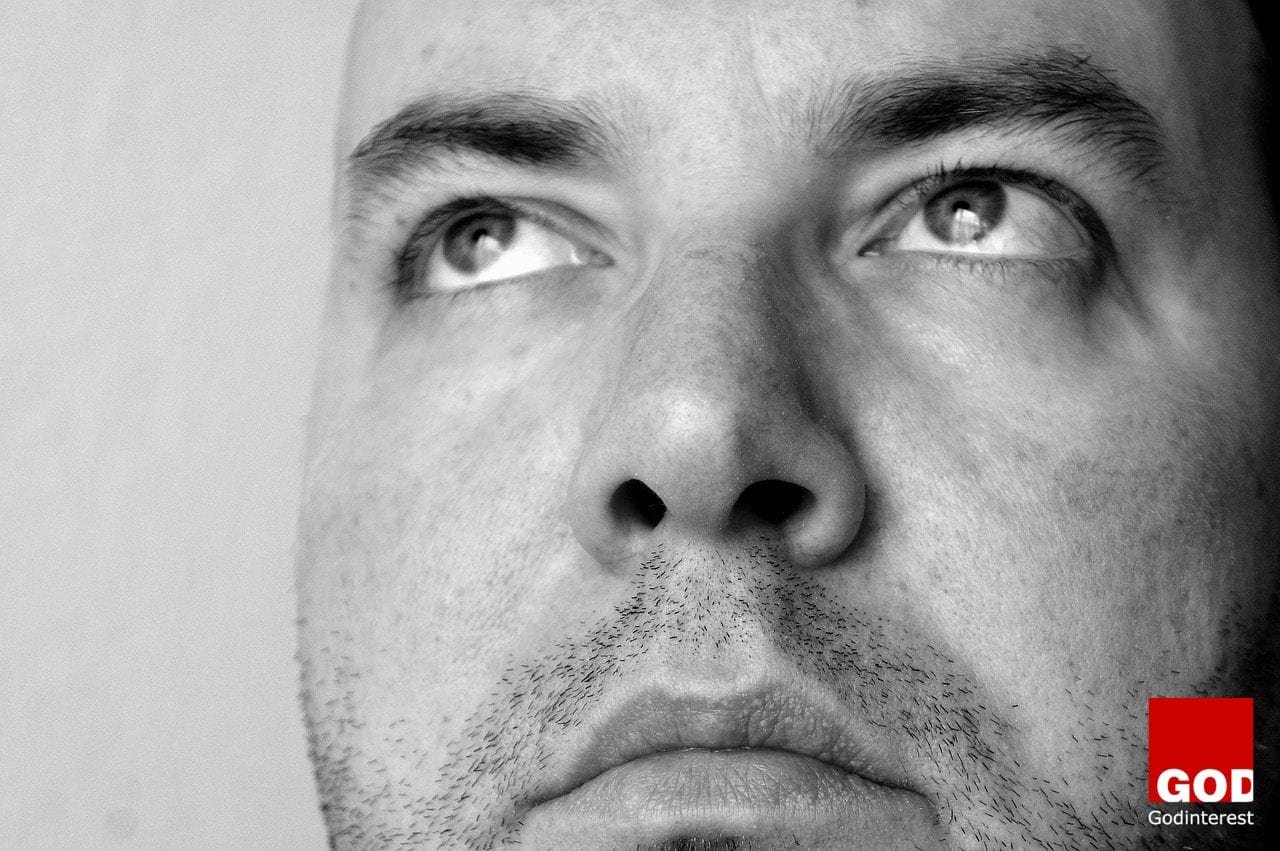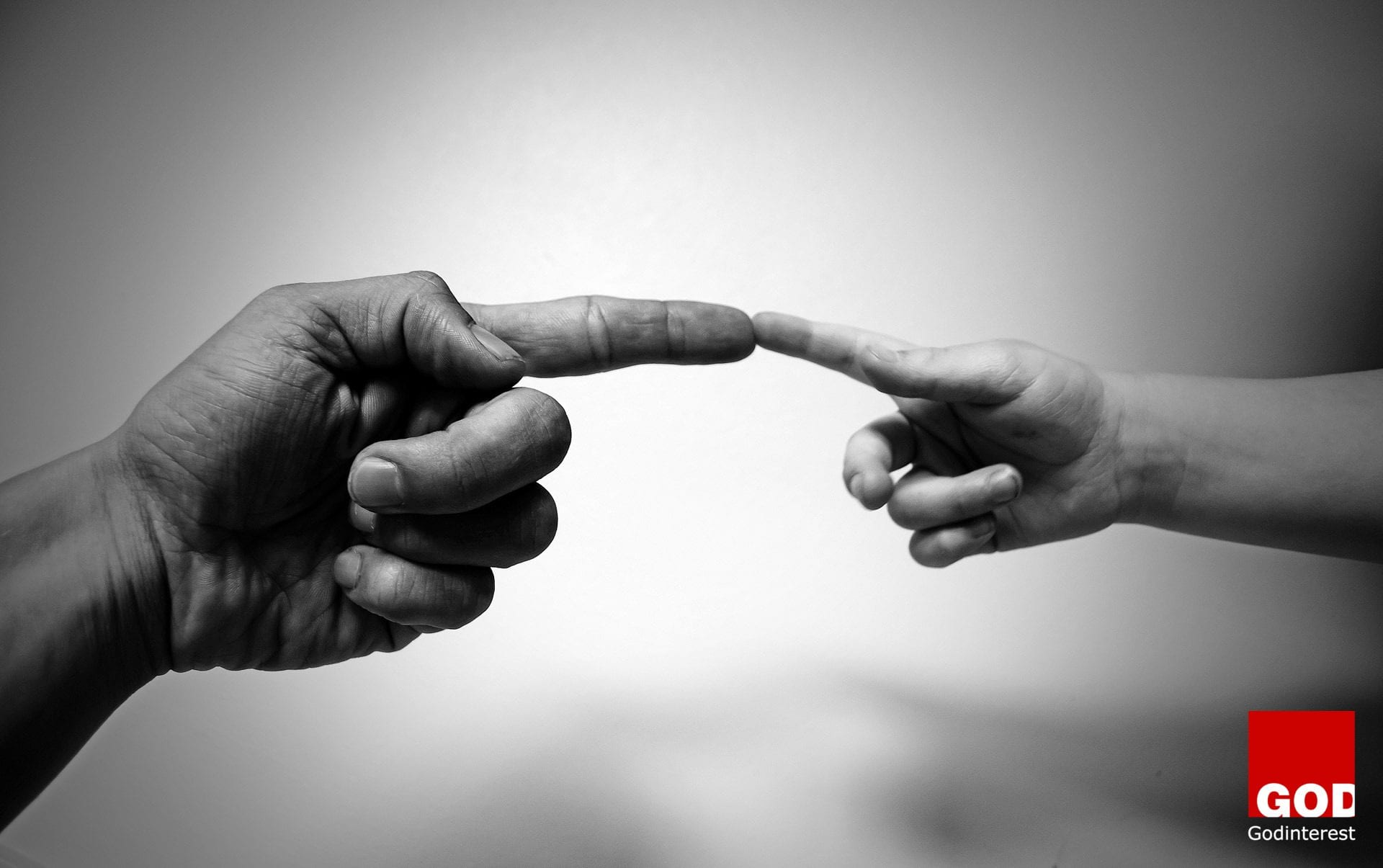Be Still And Know”¦
You may be wondering why God has allowed lockdown. Maybe He is saying “be still” you’re doing too much. Our lives today have become used to having constant activity: computers, mobile phones, television, email, video games. There’s nothing wrong with any of that stuff, but the Bible tells us that we need to stop and be still so we can focus on knowing God.
I’ve found during the difficult times when facing life’s challenges, it’s easy to want to run to a friend, or talk about it with a co-worker. But at some point, you have to stop and say, “God, I rest in You. I know You have me in the palm of Your hand.” You have to be still so you will know God and His plan for your situation.
Today, recognise your battles are spiritual battles. The people in your life aren’t the source of your problems, the forces of darkness are. When you choose to be still and know that the Greater One lives on the inside of you, you are putting yourself in a position of strength and victory. Each day, take a moment to be still before God. Let His peace cover you. Let Him refresh you by His Spirit. Remember, the battles you face belong to the Lord!
“Be still, and know that I am God…” (Psalm 46:10, NIV)
Let’s Pray
Yahweh, I humbly come before You today. Father, I choose to be still before You. Speak to my heart so that I can know You more. Fill me with Your strength and peace so I can face today’s challenges. God, I put all my trust in You, in Christ’s Name! Amen.
The main problem confronting the United States today is that there isn’t enough white babies being born in this country – fiction or fact?
And right now white people are really frightened. If you don't understand the destruction of Planned Parenthood offices and you don't understand the wall that we're going to build on the southern border of the United States. You haven't read the book The Birth Death by Ben Wattenberg then Wattenberg was a brilliant Jewish man who was a member of the American Enterprise Institute and he wrote a book the first paragraph of which says. The main problem confronting the United States today is that there isnt enough white babies being born in this country. He was an adviser to presidents of the United States he wrote the book in 1987. He says there if we don't change this and change it rapidly white people will lose their numerical majority in this country and this will no longer be a white man's land. Now I'm not misrepresenting misrepresenting this I'm telling you exactly almost exactly what he says. He says there are three things we can do to solve this. Number one we could pay women to have babies as they had been doing in Western European nations for years. Then he says and these are his words not mine. Unfortunately we would have to pay women of all colors to have babies so we don't want to do that. He says the second thing we could do is increase the number of legal immigrants that are allowed into this country every year. Then once again he says unfortunately the vast majority of those waiting to come to this country today are people of color.
So we don't want to do that. The third thing he says and white men women had better pay attention to this. Sixty percent of the fetuses that are aborted every year are white. If we could keep that 60 percent alive that would solve our birth dearth. Does that sound like racism to you. Can you talk a little bit about the trauma associated with the trauma associated with it. One of the main traumas is it tells white people that they are superior because of the lack of melanin in their skin and then they find out suddenly that we've got a black president that's traumatic. That's where the trauma is living a lie. Finding out the truth is traumatic finding out now recently that within 30 years white people will be in the new miracle minority in this country is going to be traumatic. White people are scared to death right now particularly white males. They're scared to death that they are going to lose their power in the future and they are. But if you want to get ready for the future if you want to be treated well in the future treat others well in the present. What we do in the present constructs the future we call the Japanese and you'll pardon me but this is what we call them slant eyed little yellow.
We didn't say that about the Germans. After the war we rebuilt Germany and Japan and we get along beautifully with the Japanese. That was in 1945 that we finally won that war. How many how many years ago was that figure that out quickly. I'm not a math person but you're not a math person but you know it wasn't that far and it didn't take 50 years for us to have peace with the Japanese and the Germans even though even though we dropped two atomic bombs on Japan. The Japanese hadn't killed 10 million people. Nowhere near that. We didn't drop any bombs on Germany because any any atomic bombs on Germany they were a different kind of people. We couldn't afford to do that. We killed how many Japanese people with two atomic bombs. And they for Davis. You want to talk about forgiveness. You want to talk about changing this thing. I cannot understand how Japanese people can stand the sight of any of us and yet they do. I cannot understand why black people who have been subjected to the ugliness that they've been subjected to in this country can get up every morning and go to work among us and not be absolutely furious. And I don't understand why we allow white people to behave the way they do. I don't understand that. And my third graders after they've gone through the exercise couldn't understand it and wouldn't tolerate it.
And when they went up to junior high and a junior high teacher used the N word. One of my bullet. My former student said if you're gonna use that word I'm going to go out in the hall until you stop using it as we don't use that word in this school. I was a sixth seventh grader who told his teacher off when we have enough students who are willing to confront people who are making racist sexist just homophobic statements we're going to be better off. We have got to stop tolerating the intolerable if it's intolerable for my black cousins and every black person on this earth that's one of my cousins. It was intolerable for them. It's intolerable for me. I will not tolerate it. I will not tolerate it. That is not that I am required not to tolerate that kind of treatment for the people who are related to me. And that's every person on the face of the earth. If your ignorance is such that you mistreat somebody because of your ignorance about the color of their skin don't do it around me. Number one. I've been threatened with death lots of times. Now I say go for it fool. My husband died four years ago. Being with him would not be a bad thing for me. That is not the worst thing that can happen to you living a worthless useless life is much worse than dying.
Songs of Innocence (Lessons that I HAD to learn) – Part 1
What’s wrong with ‘The Rapture’? (Debunk)
Joe La Biancas’ video
“It’s not GAY to straight. It’s lost to saved.” One lesbian’s Journey to Salvation
At 15 years old, Emily Thomes began dating a girl for the first time. Word began to spread, and she started getting questions from friends.”Are you and her gay together?” they would ask.
Emily knew that she could either cower away or own her homosexual lifestyle — so she decided she was going to own it.
Emily's testimony:
"I was 15 and I started dating a girl that lived down the street from me. It was my first time ever dating someone and being official. I was pretty pumped. I got a hickey. My dad saw it and was livid. I love her. It's a girl and I'm going to be with her. And this is how it is. It went terribly wrong."
"I said yes what about it. Love is not necessarily between a man and a woman. The problem was backwards thinking that":
Like many people in today’s culture, Emily clung to a watered-down version of the Gospel that said, “God being love meant God was nice and God was chill with what you were cool with.”
Emily said “If you were truly a Christian, you were on my side. If not, you were legalistic and needed to reread what God was really about. Judge not. God being love meant God was nice and and God was chill with what you were cool with. By 18, 19, 20 I was super wild and in serial relationships with women,” Emily explained of her past views."
"When I got to nursing school I met the girl that I ended up being engaged to. I kind of slowed down a little bit for her because she had two kids. And then at 22 I got invited to a Bible study."
Eventually, Emily became engaged to one of the women she dated. And then, at 22, was invited to a Bible study. “I expected them to bring up my lifestyle really early, and then (I) would use that as justification for not coming back, so I agreed to go.” As women shared their own testimonies, she started realizing she had nothing like that and it “bugged” her. “I could not stop thinking, ‘what if all of it is true?'” she said.
Emily Googled verses on homosexuality and was directed towards a passage that would strike her to the core. It was 1 Corinthians 6: 9-10, which reads:
“Or do you not know that the unrighteous will not inherit the kingdom of God? Do not be deceived: neither the sexually immoral, nor idolaters, nor adulterers, nor men who practice homosexuality, 10 nor thieves, nor the greedy, nor drunkards, nor revilers, nor swindlers will inherit the kingdom of God.
Emily's testimony continued:
"It scared me really really bad. And then I read verse eleven"
Amazed by the fact that there were people who’d been equally as reckless as her in the past, but Jesus still washed them clean, Emily had a revelation.
“I knew that God could do that for me too, and that I needed that. I could hold onto my sin and reject God, or I could turn to him. All the debt that I’d racked up living like I lived, didn’t have to be mine, if I could trust Him. So that was it. I knew what I wasn’t going to do, because it was right there it was black and white. I’d twisted those Scriptures before, I’d argued them down. I said judge not to them like that mattered. And then, that day, it was like my eyes were really opened. I was amazed at the grace He showed me.”
A very powerful testimony, and one that clearly articulates how we can witness to those who find themselves in the same lifestyle Emily was in. Watch & share below:
Does ‘The Image of God’ Extend to Robots, Too?
Inside a railway arch in Brixton, a piece of history was brought back to life. First built in 1928 by Captain Richards & A.H. Reffell, Eric is one of the UK’s first robots. Eric’s design was relatively simple. He was automated, but the interesting thing about Eric is how much extra stuff people read into him. Ingenious electrical instruments enabled Eric to hear questions and answer in a human voice.
On September 28 1928 Eric stood up at the Royal Horticultural Hall, bowed, looked right and left and moved his hands as he proceeded to give an opening address as sparks flashed from his teeth.
The New York Press described Eric as the “perfect man,“ built less than a decade after the word robot was used for the first time, Eric toured the world with his makers but then vanished, seemingly forever.
Nobody knows if the robot was thrown out, or lost, but it’s apparent that Eric once lauded for his technical prowess became an early victim of technological obsolescence. He may have no longer been needed or wanted even though he may have still been in working order.
In May 2016, over 800 Kickstarters investors campaigned to bring Eric back to life. Roboticist and artist Giles Walker created a replica of Eric using just a handful of archived news cuttings, pictures, and video. The robot is built with the same finesse as modern robots but purposefully lacks their capabilities. Eric is controlled by a pre-programmed sequence, using software similar to that used for controlling lights in theatres.
By resurrecting Eric, Russell and Walker want to make people reevaluate the place of robots within our history and society at large.
Commissioned by the Science Museum and funded through a successful £51,000 Kickstarter campaign, Eric is on display at the South Kensington museum ahead of a Robots exhibition in 2017 and will thereafter tour the world just like he did more than 90 years ago.
The new exhibition will feature more than 100 robots, from a 16th-century mechanical monk to robots from science fiction and modern-day research labs.
In whose image are robots made?
According to Russell, Curator, London Science Museum the answer seems to be “ourselves.”
Robots are almost like mirrors, they reflect back on ourselves, tell us who we areBen Russell, Curator, London Science Museum
As research into artificial intelligence continues, we will continue on the path of making artificial intelligence (AI) in our image. But can Christian thought provide an alternative approach to how robots are made?
The original Eric is a product of a time when an intelligent robot was still a far-off possibility. At the time, filmmakers and audiences treated these robots instrumentally; there was little sympathy for the robot dead.
Times, however, have changed. Christopher Orr, writing in The Atlantic, notes that there is a major philosophical shift in the newest version of Westworld: A shift from concern for the creators, made of flesh and blood, to concern for the created, made of steel and silicon.
Project Graham: The Ugly Face of Road Safety
We Thought We Knew What This Video Was About and Then Wham! It Hit Us Between the Eyes with a Powerful Illustration of God’s Love
Playing God: Swedish Train operator uses Big Data to ‘avoid train delays that haven’t happened yet’
Welcome to the world of “Big Data.” We have more information at our fingertips than any generation in history. We live in the world of “Big Data.” That is the new way people are trying to describe this sea of digital facts, figures, products, books, music, video, and much more. Twitter, apps, Facebook–they’re each giving science new ways to look at what people do and why.
“Hopes, fears, and ethical concerns relating to technology are as old as technology itself.”
We actually welcome some aspect of Big Data. These mysterious data successes (or accidental successes) are easy to see as a kind of Big Brother future, where technology can track your every move and report back to ”¦ someone. However, StockholmstÃ¥g, the train operator is using new technology that employs big data to predict train delays before they happen.
“The Commuter Prognosis – A Social Scientist’s Dream Come True.”
The mathematic algorithm, called “The commuter prognosis” was developed in Stockholm, Sweden.
When a train is not on time the algorithm forecasts disruptions in the entire network by using historic big data to prevent the ripple effects that actually causes most delays.
Wilhelm Landerholm the mathematician who has developed the algorithm said:
“We have built a prediction model, using big data, that lets us visualize the entire commuter train system two hours into the future. We can now forecast disruptions in our service and our traffic control center can prevent the ripple effects that actually cause most delays.”
The algorithm has been tested but is not currently being used by traffic controllers.
How does it work?
The key to the model is a large amount of historical data. The model works similar to a seismograph, an instrument that measures and records details of earthquakes, such as force and duration, but instead identifies late train arrivals. When this happens, the system uses historical data from previous occurrences to forecast the likely impact on the entire train network.
Real-time public transportation information is already used around the globe, however, traffic control centers still typically assess delays manually to try and prevent further problems in a network. The commuter prognosis system, on the other hand, will forecast these delay effects instantaneously and provide a prediction of how a single or multiple disturbance might affect the whole train network. The commuter prognosis system could change how traffic control centers operate all over the world.
“The Effects of One Delayed Train Can Quickly Multiply Within a Train Network”
Imagine that “The commuter prognosis” forecasts that a train will be 10 minutes late to station C in two hours. To deal with this the traffic control center issues a new train from station A that will arrive on time at station C. As soon as the new train has been put in motion the algorithm re-calculates and gives the traffic control center a new forecast for the entire train network within minutes.”
The most important benefit of “The commuter prognosis” is that it provides for a more punctual public transportation.
Big Data, Ethics, and Religion
These stories remind us that even though companies and governments are doing amazing things with data, it’s at best imperfect. The algorithms and programs they use to filter and respond to data are at least as fallible as the human beings who designed them. We can also see its complexity and failures as evidence of the amazing omnipotence of our God – who doesn’t make errors and who knows right where to find us, even inside a great fish or the depths of hell.
The arrival of big data has already brought with it numerous questions that have yet to be properly addressed. These questions are methodological, epistemological, and ethical, and they concern (inter alia) the ways in which data is collected, stored, interpreted, represented, and traded. A further complication is a speed with which data science is advancing, which means that (for example) the application of legal and ethical restrictions to the practice of that science will always risk being several steps behind the point that it has currently reached. There are indications that we are currently sleepwalking towards a situation in which the commercial exploitation of big data routinely increases social division, and renders privacy a thing of the past.
Ket factors
- A mathematical model interprets big data to forecasts for each train in the train network.
- The commuter prognosis can warn about delays two hours before the departure or arrival actually takes place.
- The commuter prognosis calculates how the delay affects other trains in the system.
- The purpose of “the commuter prognosis” is to make life easier for traffic control centers and to give passengers a better service.
- In the future, the algorithm will be potentially adaptable for more types of public transportations and cities.











